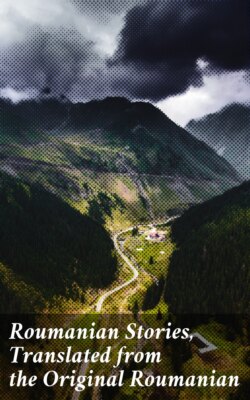Читать книгу Roumanian Stories, Translated from the Original Roumanian - Anonymous - Страница 3
На сайте Литреса книга снята с продажи.
ОглавлениеPreface
Table of Contents
By Professor S. Mehedintzi
Of Bucharest University and the Roumanian Academy
As regards poetry Roumanian literature had reached the European level by the nineteenth century. Eminescu may be placed by the side of Leopardi. The drama and the novel are still unrepresented by any works of the first rank; but the short story shows that Roumanian writing is constantly on the upward grade.
The following stories have been selected from many writers. The reader must judge each author for himself. It is impossible to settle their respective merits; that would presuppose an acquaintance with the whole of Roumanian literature. We may, however, be allowed to say a word or two about each writer.
Negruzzi is to Roumanian very much what Sir Walter Scott has been to English literature. After the lapse of nigh a century the historical novel is still identified with his name.
Creanga is a production exclusively Roumanian; a peasant who knew no foreign tongue, but whose mind was steeped in the fairy tales, proverbs, and wit of the people. He wrote with a humour and an originality of imagery which make his work almost impossible to translate into other languages.
Caragiale, our most noted dramatic author, is the antithesis of Creanga; a man of culture, literary and artistic in the highest sense of the word. The Easter Torch ranks him high among the great short-story writers.
Popovici-Banatzeanu—dead very young—and Bratescu-Voineshti are writers who more than any others give us the atmosphere of the English novel in which the ethical note predominates. Some of their pages have the poignancy of Dickens.
The same discreet note is struck by Slavici, born in Hungary, whose Popa Tanda is the personification of the Roumanian people subject for centuries to the injustice of an alien race, and driven to seek support in their own work only.
Delavrancea, a famous orator, is a romantic; while Sadoveanu, the most fertile prose writer among the younger men, possesses as novelist and story-teller a touch which makes him akin to Turgenev and Sienkiewicz.
Beza stands by himself. From the mountains of Macedonia he brings into the national literature the original note of the life of the shepherds in the Balkans. Constantly upon the road, among mountain tops and plains, always in fear of the foreigners among whom they pass, their life manifests a great spiritual concentration. Over Beza’s work there hover a mystery and a restraint which completely fascinate the reader. Though young, he possesses the qualities of the classical writers.
Translator’s Note
Table of Contents
I wish to take this opportunity of thanking M. Beza for his most valuable assistance. Without his intimate knowledge of the two languages and his kindly and expert criticism these translations would never have seen the light.
Some well-known names, that of Diuliu Zamfirescu for instance, are absent from my list of authors; lack of time and difficulty in obtaining their works made their inclusion impossible.
Lucy Byng.
